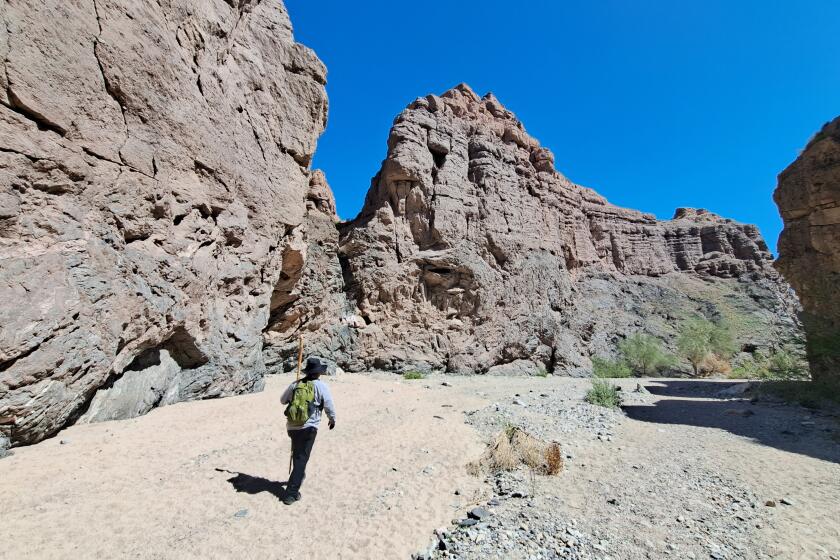CANOGA PARK : Historians Take Pieces of Past From Station
They began dismantling a part of Canoga Park history Monday, one brick at a time.
“It’s kind of sad to see it go,” said Beth Shirley, founder of the Canoga/Owensmouth Historical Society. “We had a lot of hopes and dreams for this building.”
The decrepit structure is all that remains of a former train station at Canoga Avenue and Sherman Way that played a role in settlement of the West Valley.
Shirley and several other society members were on hand to salvage mementos from the building, which was constructed in 1912. Using hammers and chisels, they removed white bricks from the Spanish-style structure.
Demolition is expected to begin later this week. The bricks, along with stucco from the roof, wooden roof supports and window frames, will be placed in a museum at the Canoga Park Community Center, society members said.
The station, which has been altered over the years, looks nothing like the original.
The deserted building became a target for vandals and vagrants, who officials suspect were responsible for an October, 1993, fire that badly damaged the structure.
The society had hoped to restore the building and turn it into a museum, members said, but they could not afford the $2-million asking price of the building’s owner, Southern Pacific Transportation Co.
In the beginning, the station was but a lonesome whistle stop, a steel rail link between the West Valley’s grassy plain and the city over the rise, according to the historical society.
The station was used to carry produce and cattle to market, but the train also brought city folks in their Sunday best, out for a day of sightseeing in the Valley.
The station was used as a passenger depot until 1920.
Jimmie Johnson, owner of Certified Contracting Services, which will demolish the building, said the actual demolition will begin after the salvage work is complete.
“It’s a demolition, but it’s also saving a little piece of history for the community,” said Jean Jauck, secretary of the historical society.
More to Read
Start your day right
Sign up for Essential California for news, features and recommendations from the L.A. Times and beyond in your inbox six days a week.
You may occasionally receive promotional content from the Los Angeles Times.






